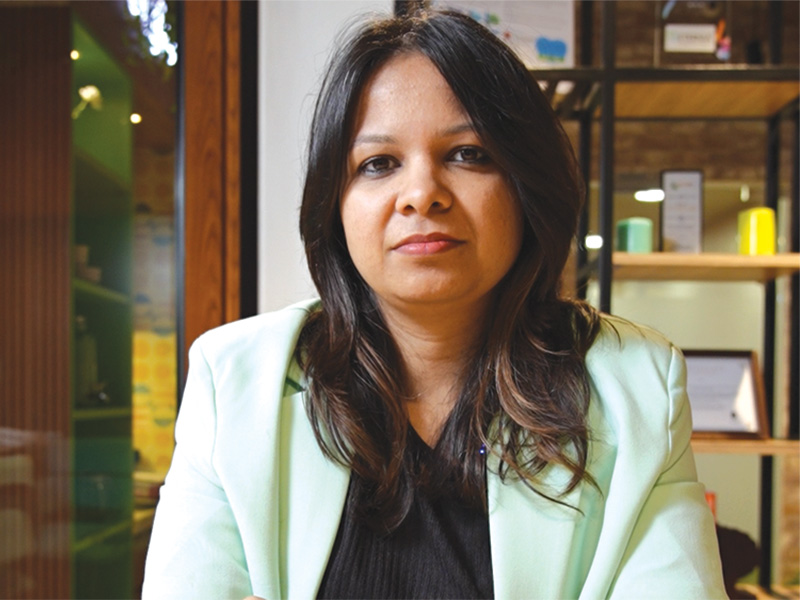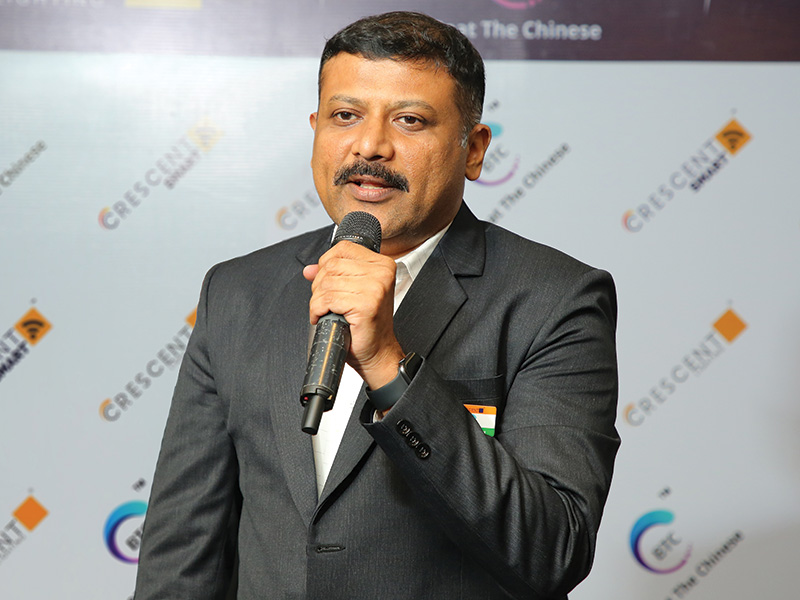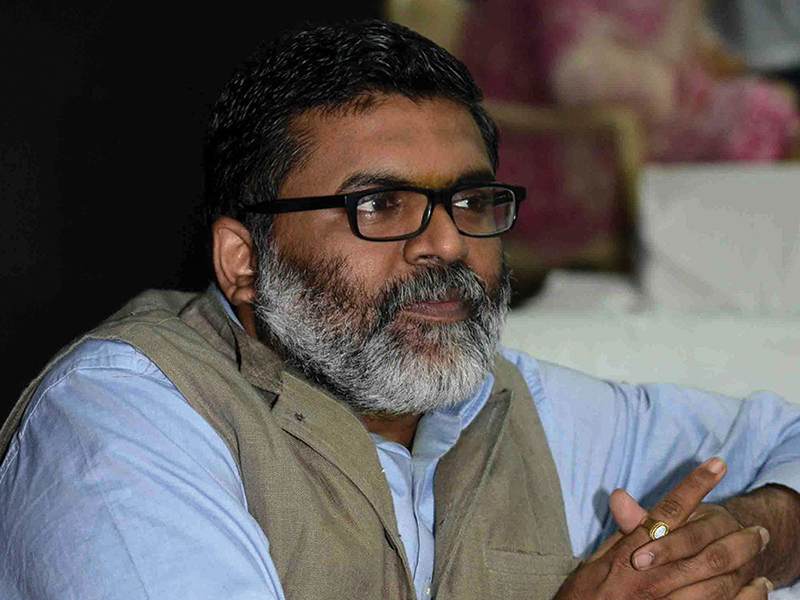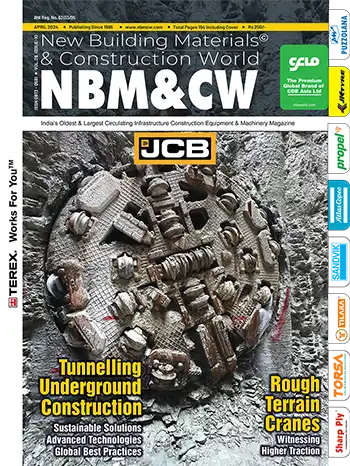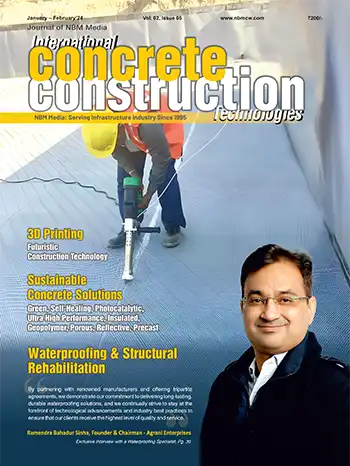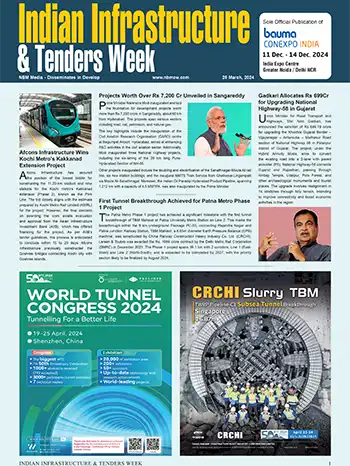What’s new in India’s tiles market?
India’s tiles market is set to witness a paradigm shift with technologically advanced products in mammoth sizes. Today, large format slabs are the most popular choice for a range of applications in both the interior and exterior spaces. Lioli Ceramica, for instance, is India’s first and only company to produce avant-garde, large format porcelain tiles of quality and finish that earlier were available only in the imported tiles category. In fact, Lioli Ceramica has set a new benchmark in the porcelain tiles segment with the introduction of 1600mm x 3200mm (5.25 ft. x 10.50 ft.) monolithic tiles, and its variants, under its brand TechnoSLAB. Very few companies in the world have the technology and infrastructure to manufacture these products.

With the launch of Lioli Ceramica’s technologically advanced porcelain tiles, the Indian tiles market has entered a new age of endless possibilities in interior design
Vikas Kesarkar,
Lioli Ceramica
What are the company’s manufacturing facilities and capacity?
With a vision to compete with the top global brands, Lioli Ceramica has made diligent investments in deploying the world’s best production systems and solutions. It has invested 30 million Euros in its infrastructure in Morbi that stretches over 30 acres of land with the manufacturing facility spread over 14 lakh sq.ft. The plant houses the world’s longest production lines and a stockyard with a capacity to store 50 lakh sq.ft. of slabs. It also houses a 10,000 sq.ft showroom that displays a variety of products in all sizes, designs, textures and colors.
The world-class plant is fully automated with machines and equipment imported from SYSTEM, Italy and BMR, Italy. The technological solutions incorporated in the production lines offer options for creating customized outputs; competing with the best Italian and Spanish companies in the world. There are three enameling lines sourced from Creadigit BS Systems for high definition digital printing and Rotocolor system for print decoration. These state-of-the-art technologies recreate the finest details with extreme precision and at high definitions of 400 DPI. The result is products of unmatched quality and designs.
The company’s production capacity is a staggering 40 lakh sq. ft. of slabs per month, which again is one of the highest production capacities for any tiles manufacturer in the country.
What are the plant’s manufacturing technologies?
With one of the biggest and technologically advanced manufacturing facilities in Asia, the company stands out as a shining example of Make in India initiative. Lioli Ceramica’s technology partners are CMF, SYSTEMS, BMR-Italy, MODENA, TechnoFerrari and F&B, which are world’s best and leading solutions companies. TechnoSLAB, the flagship product is one of the slimmest surface covers available in the market.
Lioli Ceramica has launched the products under its brand TechnoSLAB in over 20 countries, including India. With zero compromise on production infrastructure and facilities, we are committed to delivering the best to our customers and aspire to become the world’s most preferred porcelain tiles brand. Headquartered in Mumbai, the company will soon set up regional offices in all major cities across the country, and is retailing its products through a network of distributors and independent showrooms across India and international markets.
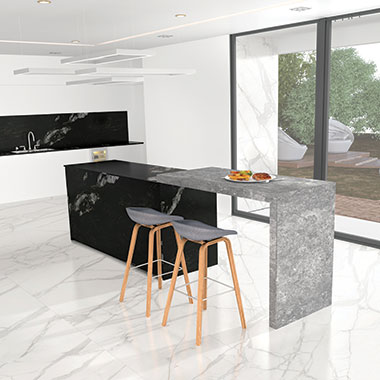
The most important step while laying any kind of tile is ensuring a good foundation. The surface of the floor or even the wall on which the tile will be laid must be absolutely flat. If not done properly, the installed tiles may be uneven, and a glaringly visible seam may appear in context to the adjacent tile. This in technical terms is called lippage and is not good for the life of the tile.
If the fixing surface is smooth, it needs to be pre-roughened before cleaning by sand paper with extra-large grit to enhance bonding. The fixing surface should be flat and cleaned of any dust or impurities by using an acid solvent like hydrochloric acid as well as a base solvent like ammonia.
The next step in laying out the slab is a little diligence in making the correct choice of adhesive to help maximise the lifespan of the installation. Epoxy, cement and mortar are generally used as adhesives in installing large sized slabs.
TechnoSLAB can be installed in both interiors and exteriors using class C2 cementitious adhesives with highly flexible S2 type enhance deformability, according to standard EN12004. In exteriors, subject to extreme heat or places exposed to harsh climate conditions, it is advisable to use adhesives with class E extended open time. For outdoor tile installations in very cold climates, it is recommended to use type F fast-setting adhesives to avoid freezing of the mixing water.
For installations of slab size 1600mm x 3200mm (5.25 ft x 10.50 ft) with easy positioning, it is recommended to use a system that offers a good grip and security since it has vacuum cups to ensure slab stability and metal structure to avoid bending. Maintaining the joint well assures appropriate adhesive strength during vibrations, taps and temperature changes by allowing a certain leeway in dimensional and plain-metric variations.
What are their lifespan and maintenance requirements?
The biggest advantages these tiles offer are ease of maintenance and seamless installation, compared to the traditional tiles. Installation of smaller sized tiles means more grout lines, which mean more visible dirt and difficulty in cleaning and maintenance. TechnoSLAB products are not only visually gratifying but are also stain, water and fire resistant. Simple, regular cleaning of the tile surface with plain water or a mild detergent-based solution is sufficient to maintain its lustre and look.
A good, solid installation is the best way to ensure that the lifespan of the slabs or the application is maximized. If used in the intended way, the lifespan of large sized slabs is the same as that of any other contemporary tile.


